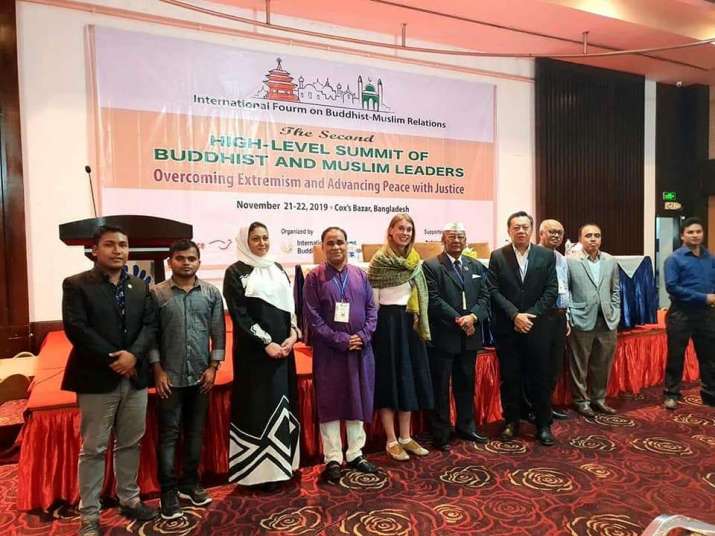
Buddhist and Muslim community leaders from South and Southeast Asia met in Cox’s Bazar, Bangladesh, on 21–22 November to discuss a number of important topics including their common solidarity with the Rohingya refugees in the region. Attended by some 30 Buddhist and Muslim leaders, the Second Buddhist-Muslim Summit discussed ways in which their religions could work together to address the needs and concerns of communities across South and Southeast Asia.
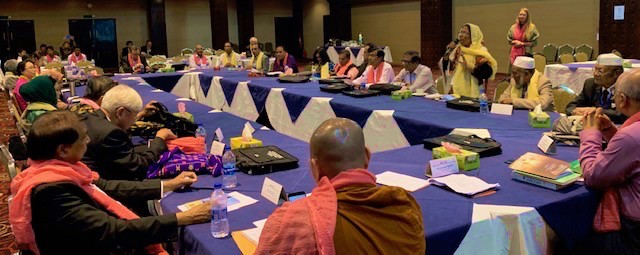
In a press release posted on their Facebook page, the International Forum on Buddhist-Muslim Relations stated:
The second High-Level Summit of Buddhist and Muslim Leaders convened over 20 Buddhist and Muslim leaders across South and Southeast Asia to discuss current needs and efforts across the region in order to overcome violent extremism and hindrances to just and inclusive societies. This meeting reaffirms the leaders commitment to the ideals outlined in the historic 2015 Yogyakarta Statement of Shared Values and Commitments between Muslims and Buddhists to overcome extremism and advance societal peace with justice.
Religious leaders, including women and youth leaders, play an important role in shaping societies and values across Asia. This includes dedicated work that increases understanding among their communities, and breaks down stereotypes, prejudice, discrimination and hatred. This High-Level meeting, hosted by Religions for Peace Bangladesh, continued to develop inter- and intra-faith relations between Buddhist and Muslim actors by identifying challenges related to Buddhist-Muslim relations and ways of further strengthening this work. The participants identified shared core values and primary narratives of Buddhism and Islam relating to respect for human dignity, non-discrimination, peaceful coexistence, and shared well-being. This was further strengthened by the design of concrete actions to make them into reality.
Highlighted discussions during the meeting related to challenges faced by minority religious groups and the impact of regional conflicts such as the Rohingya refugee situation. Participants noted the role of the minorities, lack of adequate knowledge of religion and the difficulties faced by the host communities as some related challenges. Religious leaders can be well-equipped and position to address drivers of human rights abuses and marginalization of minority communities.
The participants concluded that the values embedded in the Yogyakarta Statement must be applied by religious actors to promote mutual understanding and tolerance amongst Buddhist and Muslim communities. As a key outcome, a task force to advance one of the seven shared values embodied in the Yogyakarta Statement on “Living in Harmony with the Environment” was formed, with a focus on Bangladesh. This effectively puts forward a thematic approach for future activities of the Buddhist and Muslim forum.
Along with the topic of the ongoing Rohingya refugee crisis, the participants discussed the role of women as future leaders and the need for a greater response to environmental issues. During the summit, a task force was formed to advance the shared value of “Living in Harmony with the Environment” as outlined in the Yogyakarta Statement on Shared Values and Commitments,* a document created at the first summit at the Borobudur Temple in Yogyakarta, Indonesia, in 2015.
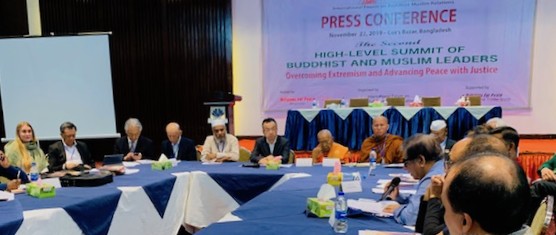
“The statement is currently being translated into local languages and will be disseminated to senior, mid- and grassroots-level Buddhist and Muslim leaders and believers, women, and youth groups,” said Rev. Kyoichi Sugino, of the statement in 2015. Sugino is the deputy secretary-general for Religions for Peace International (RfP), an interfaith NGO. (Huffington Post)
RfP, a core group member of the International Forum on Buddhist-Muslim Relations (BMF), supported the organization of the summit in partnership with the International Network of Engaged Buddhists (INEB), the International Movement for a Just World (JUST), Persyarikatan Muhammadiyah (PM), and the Network for Religious and Traditional Peacemakers.
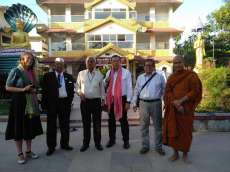
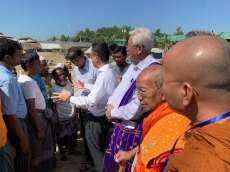
The region is home to the most populous Muslim country in the world, Indonesia, with approximately 229 million Muslims, followed by Pakistan with 200 million Muslims, India with 195 million, and Bangladesh with nearly 154 million Muslims, as well as several of the world’s most populous Buddhist nations, including Thailand, with some 65 million Buddhists, Myanmar with nearly 39 million, and Sri Lanka with just over 14 million.
The region has also been the site of many deadly conflicts between members of these two religions that both espouse principles of peace. Writing about this week’s summit, External relations associate at RfP Mary Grace Donohoe noted that: “Rising nationalistic narratives and tension are of concern in the region, particularly among Muslims and Buddhists.” (Religions for Peace)
Speaking in 2015, Bellanwila Wimalaratana Anunayake Thera, president of the Sri Lanka Religions for Peace council, affirmed that violence should not be perpetrated in the name of religion: “We reject such abuse and pledge to counter extremist religious interpretations and action with our authentic primary narratives of peace. We also recognize the need to strengthen governmental measures against religiously motivated discrimination and violence.” (Huffington Post)
* Yogyakarta Statement on Shared Values and Commitments (Religions For Peace)
See more
Buddhist, Muslim Leaders Push For Peace In Conflict Areas (Huffington Post)
Buddhist and Muslim Leaders Summit in Solidarity with Rohingya Refugees Reaffirms Yogyakarta Statement of Shared Values (Religions For Peace)












